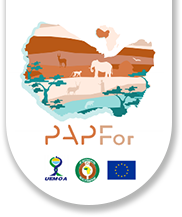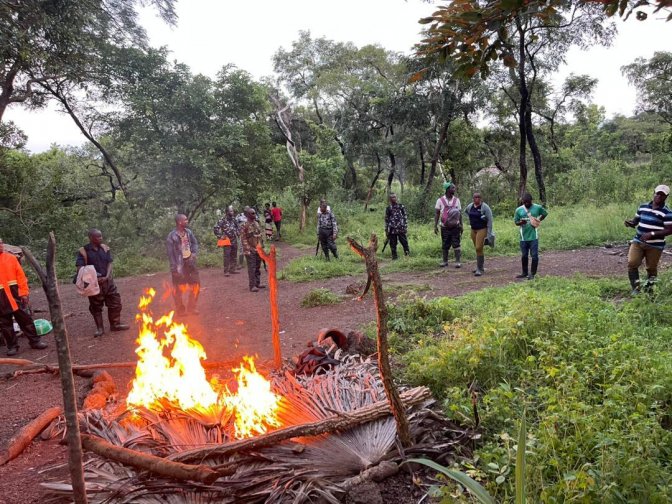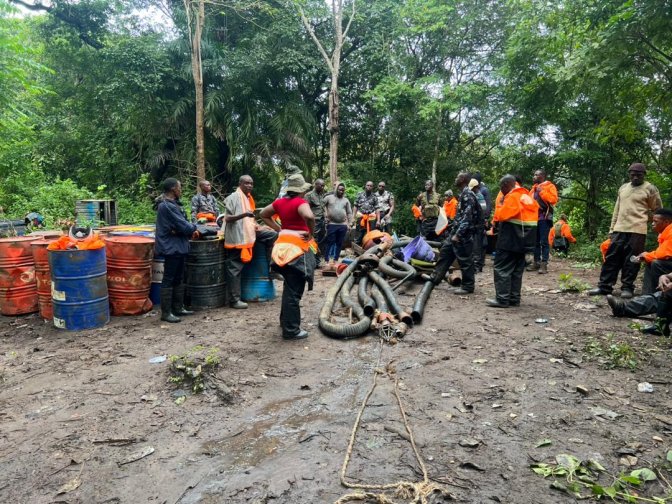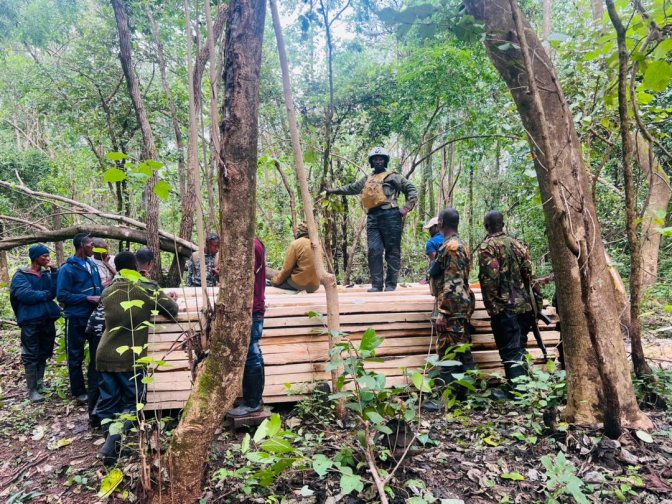Home / News / Parks authority conducts law enforcement patrol in Outamba-Kilimi National (...)
Parks authority conducts law enforcement patrol in Outamba-Kilimi National Park, Sierra Leone
In August 2023, Sierra Leone’s National Protected Areas Authority (NPAA) conducted a law enforcement patrol to curtail illegal activities in the Outamba-Kilimi National Park. After meeting with traditional authorities in the area to discuss the park’s internal regulations, NPAA rangers patrolled the park for three days. Provisional results of the patrol included the seizure of 21 items of dredge mining equipment used for gold mining and four chainsaws. The rangers also dismantled camps that were used by artisanal miners and cattle breeders. Several people were arrested and charged for encroaching in the park; the Kamakwie police division is pursuing legal proceedings against them.
This activity was part of the EU-funded Programme for the Preservation of Forest Ecosystems in West Africa (PAPFor) project for the conservation of the Outamba-Killimi-Kuru Hills-Pinselli-Soyah transboundary forest landscape (OKKPS), which is being implemented by the Wild Chimpanzee Foundation.
Unsustainable mining destroys ecosystems and exposes communities to multiple adverse effects. Furthermore, land degradation and wildlife habitat destruction due to the unsustainable extraction of natural resources in communities risk undermining food security and water availability, threatening wellbeing, livelihoods and security. Hence, environmental issues are a major cause for concern and require urgent actions.
NPAA has the mandate to protect and manage all protected areas and reserves in Sierra Leone for the benefit of the country. Its forest rangers are charged with the responsibility to apprehend offenders according to the Environmental Protection Act of 2012. However, before the intervention of the EU-PAPFor project, the rangers had insufficient equipment and lacked the manpower to carry out effective patrols deep into the park. With support from EU-PAPFor, they were provided with gear and equipment, and trained to use data collection tools such as GPS and SMART, to analyse data and write mission reports. With the enhanced material and skills, the forest rangers are able to more effectively monitor activities in OKNP and bring offenders to justice.




